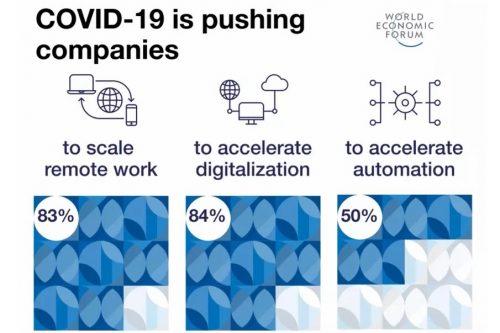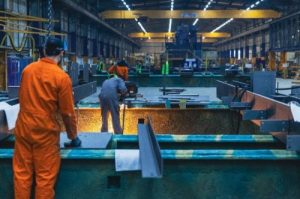Automation to have global impact on labour market

The “future of work” has already arrived and it will cause huge global disruption in the labour market in the next five years.
That is one of the central findings of a report by the World Economic Forum, which has warned of the “double disruption” of Covid-19 recessions and the accelerated automation of jobs.
Job creation is now slowing while job destruction is accelerating, it said.
The World Economic Forum has estimated that by 2025 automation and a new division of labour between humans and machines will disrupt 85m jobs globally in medium and large businesses across 15 industries and 26 economies.
Its findings highlight the global trends that the North of England is seeking to stay ahead of, and ultimately benefit from.
But it also highlights the effects of some of the potential negative disruption amplified by the impact of the pandemic.

Saadia Zahidi, managing director of the World Economic Forum
“Covid-19 has accelerated the arrival of the future of work,” said Saadia Zahidi, managing director of the World Economic Forum.
“Accelerating automation and the fallout from the COVID-19 recession has deepened existing inequalities across labour markets and reversed gains in employment made since the global financial crisis in 2007-2008.
“It’s a double disruption scenario that presents another hurdle for workers in this difficult time. The window of opportunity for proactive management of this change is closing fast.
“Businesses, governments and workers must plan to urgently work together to implement a new vision for the global workforce.”
However it expects 97m new roles to “emerge” across the care economy, in fourth industrial revolution technology industries like artificial intelligence, and in content creation fields as the economy and job markets evolve.
It believes workers will “retain their comparative advantage” in tasks that require managing, advising, decision-making, reasoning, communicating and interacting.
But that nearly half of the workers who remain in their roles by 2025 will need reskilling for their core skills.
Zahidi added: “In the future, we will see the most competitive businesses are the ones that have invested heavily in their human capital – the skills and competencies of their employees.”








